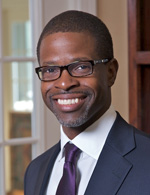I don’t know if this has been your experience, but I have noticed a trend. I am receiving more calls from prospective members who want to conduct what amounts to an interview with me to see if the church is going to meet their expectations.
I really can’t say I blame the callers, and I am happy to answer every question I can. But just once I think I’d like to be completely honest and tell them the church will not meet their expectations. Here’s what I would like to say:
“I love this church and I think you will love it, too. Often we will come close to meeting your expectations, but sometimes we will fail. Some Sundays worship will disappoint you or the preaching will irritate you. The choir will not move you. Members will annoy you. This church will not meet all of your expectations. And as a new member, you probably will not meet our expectations either. You will start out full of excitement, but once you see behind the scenes your flame will not burn as bright as it does now.”
I decided not say any of this when a prospective member called recently. I talked about the church in the most positive terms possible. She had questions about the “now,” but I focused on the “not yet.” We had an exciting eschatological conversation, you might say.
One statement the thirty-something made struck a chord with me. She said she was not concerned about the history of the church, only the vision for the future.
As an African-American pastor leading a predominantly African-American congregation, I spend a lot of time thinking about the intersection of history with an evolving reality, and what that means for the way we do ministry, lead institutions, equip disciples, cultivate partnerships, imagine the future, collaborate with other communities and educate the next generation. So it surprised me when one innocent statement summarized an entire school of thought that frightens a lot of people I serve: Jettison history and focus on the future.
I think most of us would agree that this is not the right approach, but in African-American churches I think the dilemma is particularly profound.
A compelling vision for the future is needed now as much as it ever was, but history is the reason there are African-American churches. History is the reason we sing songs in a minor key in our churches. History is the reason our churches are situated where they are in the community. History is the reason we preach what we preach and preach the way we preach. History is actually the reason we have always had to depend on a robust vision for the future.
In the early 20th century, W.E.B. DuBois wrote about the need for a “double consciousness” among African-Americans living within a Euro-centric culture. If DuBois were alive today, I wonder if he would advocate the need for a “triple consciousness” to bridge the known past, the evolving present and the uncertain future.
This is not just another rant about remembering the “good old days,” but about vitality in the future. In my next few blog posts, I want to share what I think are a few opportunities for the Black Church. I certainly do not claim to have all the answers, but Call & Response is a fine place to have the conversation.
Prince Raney Rivers is pastor of United Metropolitan Missionary Baptist Church in Winston-Salem, North Carolina.






